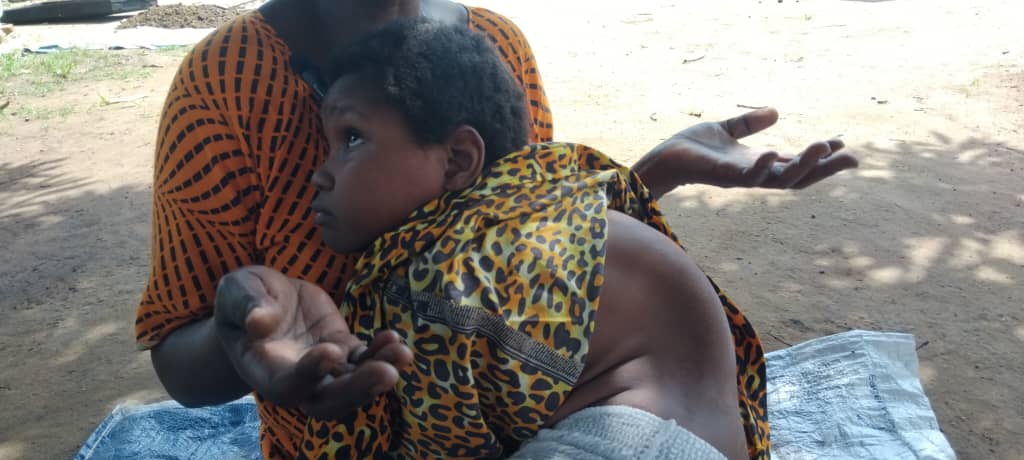
By Nathan Eyagu and James Alomu
Soroti City - In the quiet shadows of Kichinjaji, a suburb tucked away in Soroti City’s East Division, lives a mother whose strength is measured not in loud declarations but in the silent, tear-filled battles she fights every day.
Agnes Nakesa is 53 years old. Her hands are tired, her body weary, but her heart—her heart is fierce with love. Every hour of her life revolves around her 17-year-old daughter, Grace Nansime, a young girl trapped in a body that no longer lets her walk, talk, or feed herself.
Grace was born with laughter in her eyes—a beautiful, healthy child full of promise. But at just two years old, a sudden illness believed to be severe malaria struck. And in that moment, everything changed. The giggles stopped. The walking ceased. The words disappeared. In their place came silence, tears, and a future rewritten by fate.
“She can’t talk. She can’t walk. She just lies there,” Nakesa says softly, her voice breaking as tears pool in her eyes. “When she’s hungry or in pain, all she can do is cry. And I’ve learned to listen. I know every sound she makes.”
Their home, a modest structure with cracked walls and little comfort, is the entire world for Grace. Every task—feeding, bathing, lifting, cleaning—falls on her mother. There are no nurses. No machines. No special support. Only Nakesa. She uses torn pieces of cloth as makeshift diapers. There’s no money for proper supplies. No wheelchair. No therapy. Just a mother’s hands and a love that refuses to give up.
And yet, the pain is not just physical—it’s emotional too. Nakesa’s husband, once the man she leaned on, left them shortly after Grace’s condition worsened.
“He said he couldn’t live with a disabled child. He walked away and never returned,” she says, the ache in her voice heavy with abandonment.
Alone and heartbroken, she was left to raise nine children. To survive, she brews local alcohol. She sells charcoal. She wakes up each morning not knowing if there will be food on the table. Her dream—of starting a small restaurant to ease her struggles—remains locked away by poverty.
“I wanted to cook and sell food,” she says. “But every shilling I earn goes to Grace. To soap. To medicine. To food. There’s never anything left for dreams.”
Yet, she carries on. Not because it’s easy. Not because she has hope handed to her. But because she refuses to abandon her child. Grace may not speak, but in her eyes, Nakesa sees a soul worth fighting for.
“I’ve never thought of giving her away. Never,” she says firmly. “She’s my daughter. She may not speak, but I feel her spirit. Her life has meaning. And as long as I breathe, I will be her voice.”
Her story is not just one of hardship—it is one of extraordinary courage. In a country where caregivers are often invisible, where disability is misunderstood, and where support is scarce, Agnes Nakesa’s quiet resilience is a cry for help—on behalf of so many unheard voices.
Behind every tear she wipes from Grace’s cheek is a mother’s prayer for comfort. Behind every sacrifice is a plea to the world: see us, help us, don’t forget us.
This is not just Agnes Nakesa’s story. It is the story of countless mothers across Uganda who rise every day to carry the unbearable—with no applause, no aid, and no rest. It is the story of love that endures when everything else falls apart.
And in the silence of her small home, in the depth of her daughter’s eyes, the world is reminded: true strength doesn’t roar. Sometimes, it weeps.